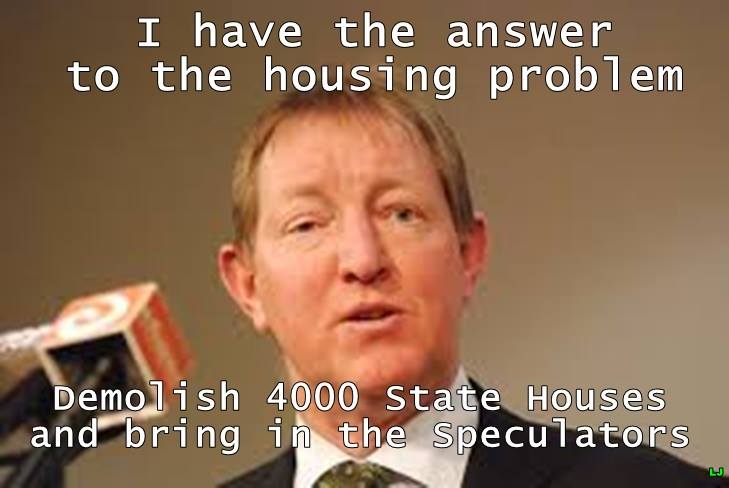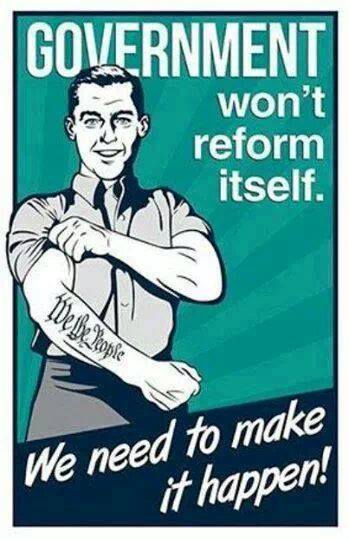E nga whare ki tu nei – Lindisfarne Community Centre – tena koe
E nga tangata whenua o tenei rohe – ngai tahu – tena koutou
E nga hau e wha – nga mihi nui ki a koutou
I’m here representing a group called SHAN (State Housing Action network) which is a network of groups formed earlier this year to fight the government’s plans to privatise state housing.
I’m here to appeal to the Invercargill community as a whole to not just resist the privatisation of state houses but to fight it and defeat it.
Why Invercargill? The Minister of Social Housing Paula Bennett says Invercargill and Tauranga have been chosen as the first two centres where state houses will be sold and it’s clear the reason is that the National government believes there will be no resistance to selling state houses here. They believe Invercargill will just roll over and accept the loss of state housing. And if they can get away with it here they will find it easier to strip out state houses elsewhere.
The government has put Invercargill on the front line of its vicious campaign to destroy what remains of our welfare state.
New Zealand has a housing crisis for families on low incomes. Across the country it’s common to find two or three families to a house, people with kids living in cars, garages and cockroach-infected caravans. The waiting time for a state house for people in the highest need category (family in a housing crisis) has gone from 55 days a couple of years ago to 129 days now.
The response to such a housing crisis should be to build more houses. It’s a government responsibility because the government can build homes much more cheaply that the private sector. The government can borrow money at much lower interest rates and can use economies of scale to reduce the cost of design, building materials and it already owns a lot of suitable land. Government is the ONLY possible solver of this crisis – the market can’t and won’t provide decent affordable homes to families on low incomes. It’s not in their DNA and never will be – at least not without a fat taxpayer subsidy.
But instead of building more houses the government is moving in the opposite direction and has put state housing under serious attack since winning the 2008 election.
- Thousands of families have been slashed from the state house waiting list.
- HNZ offices around the country have been closed – 0800 engaged just doesn’t cut it. HNZ has been downgraded to the point it no longer even allocates houses – a job now done by WINZ.
- Tenure (the right to stay in your state house) has been progressively downgraded to just a reviewable three yearly tenure. In other words the most vulnerable families are being made more vulnerable.
- Hundreds of state houses around the country have been sold for spurious reasons (wrong size, wrong place, earthquake risk)
- 90 day eviction notices have become the norm and nasty, brutish threats of fraud charges have been used to drive families out of houses the government wants to sell..
- Meanwhile hundreds of millions in dividends have been demanded from HNZ by the government in recent years while tenants die in cold damp houses – two deaths in August last year attributed by doctors directly to HNZ sub-standard homes. HNZ is being treated as a cash cow by the government – $70 million in dividends each year and the government has demanded $252 million more in the next three years. Collecting dividends is more important to National than upgrading state housing to a decent standard. And who pays those dividends? Low -income families who are being exploited by the government which has bastardised the role of Housing New Zealand. Its main role now id not to provide services to families in need but to provide dividends to the government.
(An important aside here: This is just like the tax burden. The highest tax rates are paid by lowest-income workers and families – eg State house tenants typically pay 14% of their income of GST compared to less than 5% for the wealthiest New Zealanders. Total tax for a family on a low income is about 25% of income compared to Prime Minister John Key who pays between two and three percent of his total income in tax)
Social housing model
Instead of solving the housing crisis the government is passing it on to so-called social housing providers and it is extending the IRRS (Income Related Rental Subsidy) to include social housing providers as well as HNZ. But the IRRS will be capped and a desperate family will now need not just a vacant house but also a “financial vacancy” before they will be able to get the subsidy. So we will have situations of empty houses and desperate families who can’t move in until someone leaves or is evicted from another house. The whole policy is designed to save the government money which will go in tax cuts for high and middle income earners in election year.
Mass sale of state houses
What we are witnessing is the start of the biggest privatisation in New Zealand history – $17 billion in state houses (the previous biggest privatisation was Telecom in 1990 at $4.25 billion) In the first year the government intends to sell up to 2,000 houses and up to 8,000 within three years.
And who will buy them?
Social housing providers are small and do a good job but they are not set up to provide homes for all the families who need them and we shouldn’t expect them to. Only the government has the resources and the capacity to build the number of homes needed by New Zealand families on low incomes.
Our most credible social housing providers like the Salvation Army and Methodist Mission won’t buy into this policy – they say we need more houses and simply transferring houses to another provider shifts the problem – it doesn’t solve it.
So the government is grooming the Australian Company Horizon Housing Limited to be the biggest buyer – up to 500 houses to the one foreign company.
I hope state house tenants in Invercargill and the people of Invercargill generally will think not just about themselves but about the future of state housing around the country. The government will give any assurance you like to existing HNZ tenants but think about families in the future. It’s about privatisation and removing from the next generation of low-income families the same opportunity.
As I said earlier Invercargill is on the front line of National’s attack on state housing and there is an historic responsibility on the city to resist this policy – to fight it and defeat it. This can only be done by building a coalition across the city to outright reject the government’s plans and stop it trying to palm off responsibility for state housing onto others.
Thanks you for coming to this meeting – you have taken the first step – now together we have a successful campaign to wage – one we can be proud to tell our children, grandchildren and great grandchildren.







Where and when ?
I wish you every success John, This is a fight that effects every worker in this country weather a state house tenant or not.
What is Nat-Lite doing about this? Haven’t heard a squeak out of them over this!
Hey John Minto. I’ve just realised . My demands of where and when seems rude to me. My apologies x . I was eating , writing, and trying to get my dog to lie still long enough for me to warm my toes in her udders.
Respectfully, where is the rally/meeting and when. I’ll try to get there. Or is that it in Maori? I can’t read Maori sorry.
It was yesterday afternoon in Invercargill.
cool . I’ll be there.
Comments are closed.